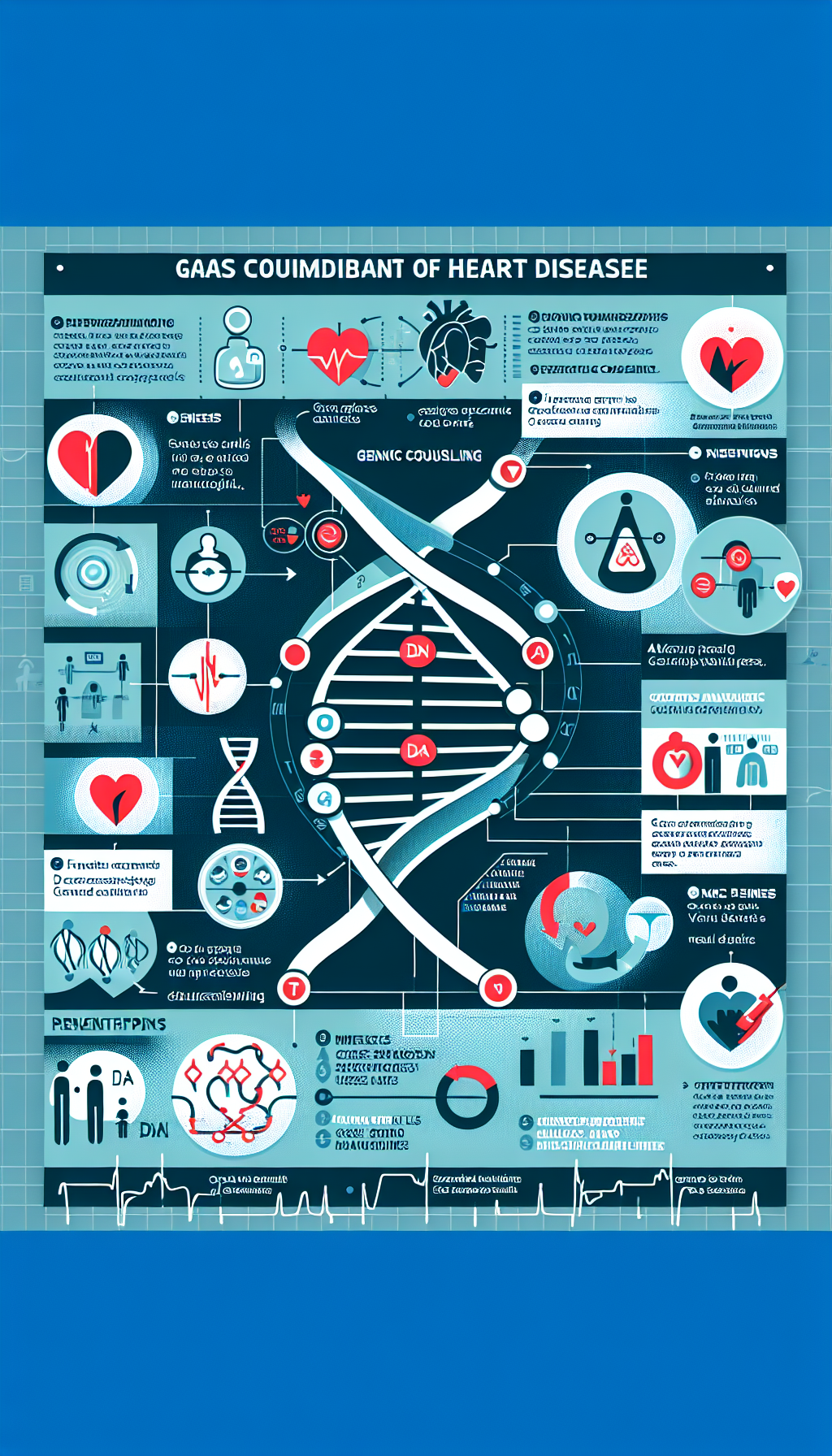Heart disease remains one of the most challenging health issues worldwide, leading to an increasing interest in preventive strategies, especially for those with a family history of the condition. Genetic counseling has emerged as a pivotal component in preemptive healthcare, offering personalized risk assessments and management plans for heart disease. This article delves into the significance of genetic counseling in heart health and how it can be integrated into preventive care.
Understanding Genetic Counseling in Heart Disease
Genetic counseling is a process that involves the assessment of family history and genetic factors to gauge an individual’s risk of developing certain diseases, including heart disease. Counselors provide information and support to help individuals understand their risks and make informed healthcare decisions.
The heart is an organ that can be significantly impacted by genetic factors. Conditions like hypertrophic cardiomyopathy, familial hypercholesterolemia, and long QT syndrome are known to have strong genetic links. By identifying these risks early on, interventions can be more targeted and effective.
The Genetics of Heart Disease
While lifestyle factors such as diet, exercise, and smoking play a crucial role in heart health, genetics can predispose individuals to heart disease. For instance, specific genetic mutations can lead to abnormal cholesterol levels, which can increase the risk of heart attacks and strokes. Genetic counselors can evaluate these risks by reviewing family history and, if necessary, recommending genetic testing.
The Role of Genetic Counseling
Genetic counseling offers a proactive approach to heart disease by:
- Identifying at-risk individuals: Through detailed family histories, genetic counselors can pinpoint those who may benefit from further genetic testing.
- Interpreting test results: If genetic testing is performed, counselors help patients understand the implications of their results.
- Guiding healthcare decisions: Based on risk assessments, genetic counselors can advise on lifestyle changes, surveillance strategies, and possible medical interventions.
Integrating Genetic Counseling into Preventive Care
Preventive care is about taking steps to avoid the development of disease. By integrating genetic counseling into preventive strategies, individuals can take advantage of personalized health plans.
For example, a person with a family history of early heart disease may be advised to undergo more frequent cardiovascular screenings. In contrast, someone with a genetic predisposition to high cholesterol may focus on dietary modifications and medications to manage their risk.
Collaborative Care
Incorporating genetic counseling into preventive care requires a collaborative approach. Genetic counselors often work alongside cardiologists, primary care physicians, and other specialists to develop comprehensive care plans.
Educational Component
An essential part of genetic counseling is education. Patients learn about the role of genetics in heart disease and the impact of environmental factors. This knowledge empowers them to take charge of their health and make changes that can have a lasting impact.
Emotional Support
Receiving information about genetic risks can be daunting. Genetic counselors are trained to provide emotional support and guide patients through the decision-making process, addressing concerns and helping them cope with the psychological impact of their risks.
Linking Genetic Counseling to Broader Health Topics
Genetic counseling for heart disease doesn’t exist in isolation. It’s part of a larger conversation about overall health and wellness. For example, understanding genetic risks can lead to broader discussions about cardiovascular health, highlighting the importance of regular exercise, a balanced diet, and stress management.
Further Reading on Heart Health
To expand on the knowledge of heart disease prevention and management, consider exploring the following resources from Avix Health:
- Learn about how early intervention can be a lifesaver in cases of family history of heart disease in Preventing Heart Disease with Early Intervention in Family History Cases.
- Understand the impact that lifestyle factors, like exposure to blue light, can have on your heart in The Effects of Blue Light Exposure on Cardiovascular Health.
- Discover the potential role of anti-inflammatory medications in combatting heart disease in Combating Heart Disease: The Potential of Anti-inflammatory Medications.
External Resources for In-depth Knowledge
For those interested in exploring the topic further, the following external resources provide valuable insights into genetic counseling and heart disease prevention:
- A deep dive into the genetic aspects of cardiovascular diseases can be found on the American Heart Association’s scientific statement on genetic testing for heritable cardiovascular diseases.
- The Genetics Home Reference guide by the U.S. National Library of Medicine offers a comprehensive look at genetic conditions and the genes or chromosomes responsible for them.
- Current research and developments in the field of genetic counseling can be accessed through the Journal of Genetic Counseling, offering peer-reviewed articles on innovative practices and study findings.
Conclusion
The integration of genetic counseling into the prevention of heart disease represents a shift towards more personalized and precise healthcare. With a deeper understanding of genetic risk factors, individuals can make informed decisions about their health and potentially prevent the onset of heart disease. As research continues to evolve, the role of genetic counseling in heart health is likely to expand, offering new insights and strategies for combating this pervasive health issue. The key to harnessing the full potential of genetic counseling lies in education, collaboration, and a proactive approach to health and wellness.



